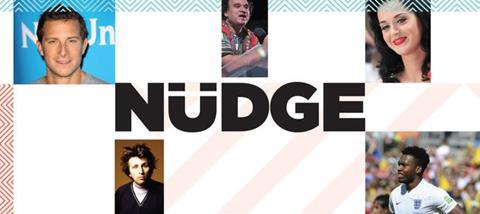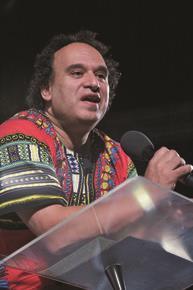
In 1975, two men had lunch together in Colorado. (This story gets better, we promise.) One of these men was Bill Bright, the founder of Campus Crusade, and the other was Loren Cunningham, founder of Youth With a Mission. They each arrived for this lunch with a message to give to the other. As it turned out – the message they each had was identical. Both of them had felt God say this to them: to impact any nation for Jesus Christ, we have to affect the seven spheres, or mountains of society, that affect our nation.
The seven spheres or mountains of society are essentially the seven different arenas in which we operate and have influence. These are: arts and entertainment, government, religion, media, business, family and education . It is in these spheres that a culture is won or lost, that a nation is tipped towards or away from God.
When we think about changing a nation, the temptation can be to launch into Church work, leaving other jobs or ambitions behind. This isn’t necessarily wrong; many are called into ministry and the Church is the hope for the world! But we also need Christians to become accountants, CEOs, florists, dancers, mothers, fathers, teachers, MPs and TV producers.
We spoke to lots of different Christians working and operating across the seven spheres, to hear how their faith impacts their work, and how they seek to influence the arena they are in.
ENTERTAINMENT

Have you ever considered doing a ‘Christian’ stand-up show?
I had thought that maybe next time I do Edinburgh, I could do a show with proceeds to charity or something like that, where I talk about it and maybe use some one-liners and stuff. But, I am conscious that even when a comedian starts preaching politically in what they’re doing, they stop being funny. And, I’m employed to make people laugh. I’m a comedian who is a Christian as opposed to a Christian comedian.
What’s it like being a Christian on the comedy circuit? Do you get flak off other comedians?
I don’t think it’s much different to any other workplace, in that you might have a conversation with someone about faith and they might say, ‘that’s interesting,’ and then you may not talk about it for ages and ages. There are a number of comedians who are ‘out’ as Christians, but there are also a number of people who have either had a faith, are sort of coming towards a faith, or like the idea of talking about it. So, it’s not a case of ‘them and us’, and that’s true of any environment I think.
If anything, potentially it’s quite a lonely position, because you don’t feel at home in the Church because some of them wish you were doing something else, and you don’t feel at home at work all the time. Certainly in a Mock The Week type environment, I sometimes think ‘I have nothing to say on this subject, it will cause more trouble than it’s worth’. It can be quite isolating. I think it’s harder for an actor who’s given a script and told: ‘Here’s your part. Say these words.’ At least I’m in charge of what I say, and it’s my own fault if I say something I’ll regret. So far I’ve managed to bite my tongue. (Originally printed in Premier Youthwork, November 2013)

What’s life been like since being on The X Factor?
Before I came on the show I expected everything that was to happen, and I knew that things would change. It’s quite a lonely world, but you just need to keep your good friends close.
Was it difficult being a Christian on the show?
Is it difficult being a woman? Difficult being a man? It’s just part of me I guess. It’s never a thing that I’ve questioned myself. Other people question it and try to make you feel like an outcast but I know in my mind that they’re the ones with a problem, not me. I’m very good at saying no if it comes to compromising my faith or who I am, I’ll just say no straight away.
People think that I’m shy and reserved and wouldn’t say things, but if it comes to compromising myself - it’s no straight away.
[During the show] James Arthur asked me to pray for him. When people go through things, they turn to faith as it gives them hope.
Daniel Sturridge
‘Not ashamed to tell the world. I’m blessed and I thank God for all that has come my way. Giving God the glory always’ (@D_sturridge)
Jessie J
‘it’s not something I’ve ever spoken about openly... I thank God every day for my blessings and my talent’ (Speaking to 3am)
Katy Perry
‘God is very much still a part of my life... I still believe that Jesus is the son of God’ (Speaking to Rolling Stone)
GOVERNMENT

How do you lead in your job?
I lead staff and prisoners. Motivating staff is vital as they have a direct impact on the prisoners. If staff are happy in their jobs, they treat the prisoners well, improving the whole dynamic. With leading prisoners, it’s key not to make false promises because if the staff don’t follow through, prisoners can feel de-valued, causing threats to surface. So I hope I’m an example to my staff of how I want them to lead with integrity – even if I don’t always get it right.
How do you bring your faith in to your job?
As a Christian leader, being a ‘gatekeeper’ is important to me. It’s not always easy for the local church to gain access within the prison, so I ensure that where there are trustworthy groups wanting to get involved, they are given opportunities.
What advice would you give to young Christian leaders?
Don’t miss out on small opportunities to grow as that enables you to get to bigger things. You may think people haven’t seen your potential, but God has, and if you honour him through small things, he’ll develop that potential in his timing.
David Cameron
People who advocate some sort of secular neutrality fail to grasp the consequences of that neutrality, or the role that faith can play in helping people to have a moral code. I believe we should be more confident about our status as a Christian country, more ambitious about expanding the role of faith-based organisations, and, frankly, more evangelical about a faith that compels us to get out there and make a difference to people’s lives.
David Cameron writing in the Church Times
RELIGION

As a young Christian, how did you start leading in Church?
For me, I didn’t realise I was leading. I helped with the youth group, you get to know the young people, and you pray and chat with them. I never thought it was leading at the time but looking back of course that is the essence of leading. A leader is an influencer and we all influence each other, so in one sense we are all meant to be leaders.
What challenges do you face with leading a Church?
When people let you down, when you invest in someone and they walk away, when they really mess up or sometimes even turn against you - you have to remember that that’s what happened to Jesus; Judas turned against him, the disciples ran away, Peter messed up and denied him and Jesus carried on. So I suppose it’s learning that Christian leadership is about loving and serving people whatever the results because God takes a long view on us; he never gives up on us and we mustn’t give up on other people either.
MEDIA

Do you feel called to the media?
Yes, definitely. It’s all I’ve ever wanted to do. I remember listening to radio as a child, and a teenager, loving how the voices on-air connected with me, and being very clear that I wanted to do that.
How does your faith in form your work?
Faith is central to my work at Premier Christian Radio for obvious reasons, but it means that I am constantly thinking about the programmes that will inspire people, uplift them or inform them. I imagine a listener who is having a bad day, or is struggling at work, or stuck at home, and think how I can minister to them.
How do you lead in your role?
I think you have to set the example. I lead a team of presenters and I have a policy that I never ask them to do anything on the air that I wouldn’t do myself. Christians are accused of hypocrisy all the time, so it’s really important that what you do and say matches up.
What are the challenges of being a Christian in the media?
The preconceptions people have of Christians can be a problem. Non- Christians can tend to regard us as slightly wet, Kum-ba-ya singing-types, which means it can be difficult to be taken seriously. But if you have a vision, and a calling and seek to be good at what you do, you can break those perceptions down .
Bear Grylls
I’m away a lot. To be honest, if the point [of Church] is to find community and be encouraged, then I find the best church often happens with my kids. We’re at home on a Sunday. I’ll get out the old piano and sing a few simple kids songs and a little hymn. I stick to ‘He’s got Huckleberry, Marmie, in his hands’…That is church. We’ll read a little verse. You know, ‘I am holding you by your right hand.’ We’ll say a little prayer for each other and we’re done in seven minutes. It’s wonderful.
Bear Grylls, speaking to The Telegraph
BUSINESS
Anthony Ogunbowale- Thomasis the founder of Goodfruit, a funding and skills platform where projects with integrity and purpose are brought to life
How do you lead in your role?
I try to regularly remind our team about the big picture of why Goodfruit exists. I also try to embody the values we talk about and promote as a company; it’s one thing to promote good fruit but it’s another to bear it, so it’s doubly important for us to stay as close to Jesus as we can, so that we can represent him and ourselves well! It’s not easy and I’m not always successful at it but it’s the intent I always try to keep high in my mind.
FAMILY
Pete and Sarah Wynter
Why is family one of the spheres?
It’s different to the other spheres - some people will be involved in government, others in education and so on. But we are all involved in family.
How do you forge Christian family and why is that important?
It’ll be different for everyone. For us it works in a range of ways. We have the families we come from, and try to respond to biblical encouragement to honour our parents and support our siblings where we can. We are also married with two children, and think it’s really important to be living out our faith in our everyday lives. That means praying together, often at meal times and bed time, reading Bible stories and applying Christian principles and values to the world of a toddler.
What impact do you think Christian families can have in transforming society?
A huge one - the breakdown of family is causing huge issues in our country and beyond. There are numerous negative statistics with their roots firmly in issues of family breakdown - for example the vast majority of young offenders held in our prisons come from broken homes. Family life is not always easy. It requires sacrifice and perseverance, but there are millions crying out for a place to belong and somewhere to feel safe. When they know they are loved they are more likely to live life to the full. That’s at the heart of the Christian gospel, and it’s the very heart of the family.
EDUCATION
Patrick Davies is a teacher in a special needs primary school
How do you lead in your job?
I am able to work closely with the leadership team of the school to develop and shape the school, building a community in ways God would have us work together as his children.
How does your faith in form your work?
I work in a special needs school, and so the children I work with face significant challenges. I hope to use my role to show children how God cares for them, values them greatly and has plans for them. Knowing my own identity in Christ gives a great perspective when we are chasing levels and achievements, or waiting for Ofsted to arrive!
What are the challenge s of being a Christian in that context?
There is a possibility that the pressure and busy-ness of the role can make it a challenge to remember how important it is to rest! It is a challenge to maintain a life balance which allows space for God to speak and work and direct our life, so we have to be deliberate about prioritising that.











































